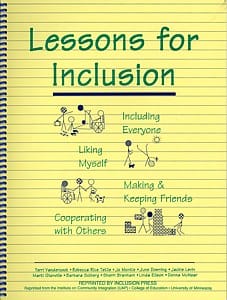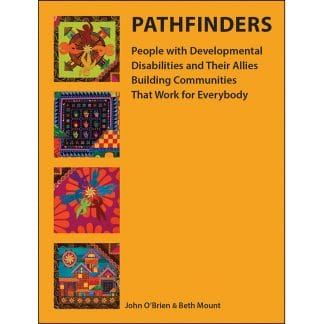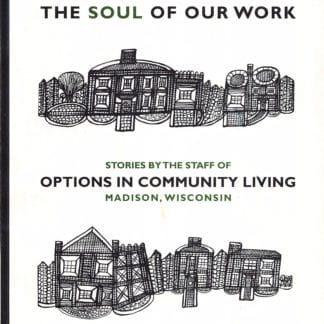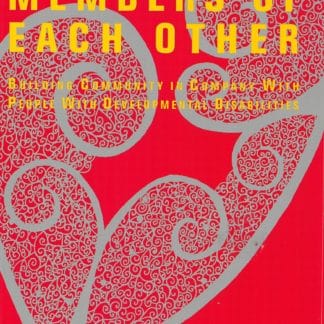Description
Gary Bunch and Angela Valeo collaborate to bring decades of experience to this thoughtful analysis of the journey toward inclusion. Without blaming anyone, they examine the history of our ‘cultural beliefs’ about education and disability – and then why we need to move to full inclusion for all.. while acknowledging the pressures on students, teachers and families. Although written in 1997, the analysis is as valid today.
Table of Contents & Introduction
To us acceptance or rejection of inclusive education for all students is primarily a matter of attitude. There is no longer any argument that the inclusive approach cannot work, that teachers cannot undertake it without unfair stress, that the education of other students will be harmed, or that included students will suffer wholesale rejection by their peers. Such arguments are disproved by the fact that teachers successfully practice inclusion in preschools, elementary schools, and high schools every day. We know that any significant educational reform will draw resistance from some or many educators due to fear that their working conditions will be affected, that the task is beyond their capacities, and due to the implied or direct challenge to the manner in which they have understood and practised their profession. Therefore, the first two sections of the book examine teacher attitudes, and the attitudes of other participants in the practice, toward inclusion.
We believe that attitudes and their roots, whether negative or positive, must be understood for reasoned reform of what has been accepted as the only way to do things. Without knowing what teachers, parents of included students, parents of regular students, and the students themselves believe, efforts to move ahead and address concerns will be less fruitful than they should be. Teachers do have concerns about inclusive practice, but they also see many values in it. These values should be our guides in development of strategies to deal with these concerns.







